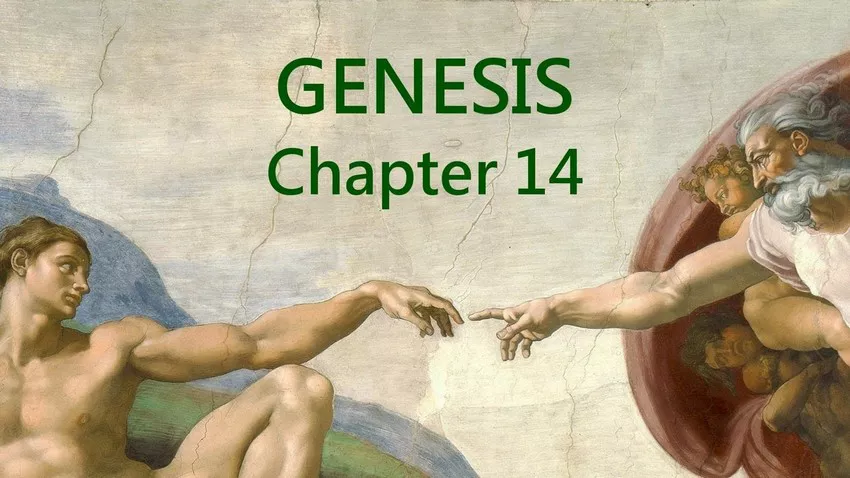Genesis Chapter 14 Summary
Genesis 14 recounts a significant event in Abram’s life, where a coalition of kings led by King Chedorlaomer defeats several other kings, including the king of Sodom. Lot, Abram’s nephew, is taken captive during this conflict. Abram, upon hearing of Lot’s capture, assembles a group of trained men and successfully rescues Lot, along with others and their possessions. Following this victory, Abram encounters Melchizedek, the king of Salem and a priest of God Most High, who blesses him. Abram gives Melchizedek a tenth of the spoils, showing reverence for God’s providence and acknowledging divine victory.
Bible Genesis Chapter 14
Welcome to read Genesis Chapter 14. Here is the list of Genesis Chapter 14:
What Does Genesis Chapter 14 Teach us?
This chapter teaches valuable lessons about faith, leadership, loyalty, and the importance of acknowledging God’s hand in victory.
The Importance of Courage and Loyalty
In the first part of Genesis 14, we learn of a conflict involving a coalition of four kings, led by Chedorlaomer, who defeats five other kings, including those of Sodom and Gomorrah. Lot, Abram’s nephew, is caught in the crossfire, taken captive along with his possessions. When Abram hears of this, he immediately gathers 318 trained men and sets off to rescue Lot.
Abram’s swift response reveals his courage and loyalty to his family. Despite not being involved in the original conflict, Abram doesn’t hesitate to risk his safety to rescue Lot. His actions demonstrate the importance of standing by family and loved ones in times of need, even when it requires personal sacrifice. This shows us the value of loyalty and bravery in the face of overwhelming odds.
The Role of Divine Providence
Abram’s victory over the powerful kings with a small force of 318 men is a clear example of divine intervention. Genesis 14 emphasizes that despite the overwhelming might of his enemies, Abram succeeds because of God’s guidance and protection. This victory demonstrates that success does not depend solely on numbers or strength but on God’s providence.
For modern readers, this serves as a reminder that, like Abram, we should trust in God’s plan and not be discouraged by seemingly insurmountable challenges. When we act in faith and righteousness, God’s presence can lead us to victory in situations where we might feel outnumbered or overwhelmed.
The Encounter with Melchizedek
One of the most significant moments in Genesis 14 is Abram’s encounter with Melchizedek, the king of Salem and priest of the Most High God. After Abram’s victory, Melchizedek blesses him and offers bread and wine, saying, “Blessed be Abram by God Most High, Creator of heaven and earth. And praise be to God Most High, who delivered your enemies into your hand” (Genesis 14:19-20, NIV).
Melchizedek’s appearance in the narrative is brief, but highly significant. As both king and priest, he foreshadows the coming of Christ, who would later be called a priest in the order of Melchizedek (Hebrews 7:1-3). Abram’s response to Melchizedek’s blessing—giving him a tenth of all the spoils—reveals Abram’s recognition of God’s role in his victory. This act of tithing acknowledges that everything Abram achieved was through God’s power and favor.
The Danger of Compromise
After his encounter with Melchizedek, the king of Sodom offers Abram all the spoils of war, asking only for the return of his people. However, Abram refuses the offer, stating, “I have raised my hand to the Lord, God Most High, Creator of heaven and earth, and have taken an oath that I will accept nothing belonging to you” (Genesis 14:22-23, NIV).
Abram’s refusal to accept anything from the king of Sodom shows his desire to maintain integrity and avoid any association with a corrupt ruler. This teaches us the importance of not compromising our values for material gain. Abram understood that accepting the offer could make him indebted to the king of Sodom, which could later tarnish his reputation or suggest that his wealth came from questionable sources rather than from God’s blessings.


